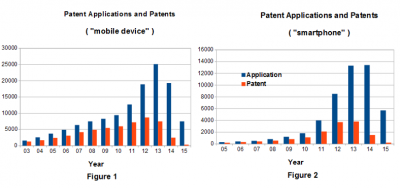wesboudville
Beta member
- Messages
- 3
- Location
- CA USA
The number of mobile device and smartphone applications and patents has fallen dramatically in the US. Is this a harbinger of future trends? Is the field running out of big new ideas?
https://plus.google.com/111916065185088472339/posts/hHkLTKyBR8T
Dr Wes Boudville
https://plus.google.com/111916065185088472339/posts/hHkLTKyBR8T
Dr Wes Boudville
